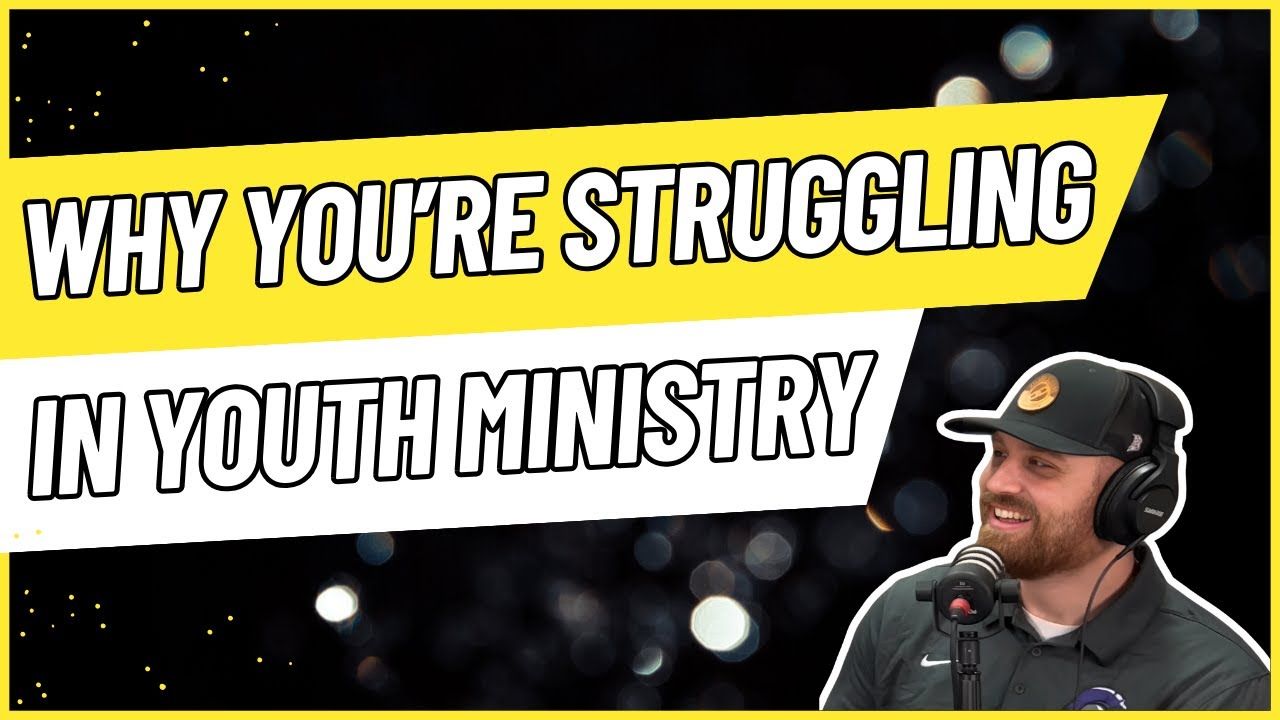Navigating the Digital Frontier: Social Media Strategies for Youth Leaders | BTYR Podcast • Ep. 33
Navigating the Digital Frontier: Social Media Strategies for Youth Leaders | BTYR Podcast • Ep. 33
Introduction
In this episode of the Beyond the Youth Room podcast, Keith and Ryne delve into the crucial role of social media in youth ministry. They share their experiences and strategies for leveraging social media to expand their reach and impact more students. The discussion covers practical advice for youth leaders who are either new to social media or looking to improve their existing strategies.
Main Points
Establishing Credibility:
- Keith and Ryne acknowledge they aren't experts but have gained significant experience through their ventures. Keith’s hobby business, Seymour Cycle Works, and his monetized YouTube channel have taught him valuable lessons about social media. Additionally, their podcast, launched in October 2023, has garnered over 360,000 views across platforms, demonstrating their growing influence.
Importance of Social Media:
- Social media is a vital tool for reaching students, as they spend more time online than in school. The average teenager spends about 8.5 hours a day on social media. Keith and Ryne emphasize the need to leverage this platform for spreading the gospel and connecting with more students.
Content Strategy:
- Ryne outlines the content strategy for their youth ministry. They record monthly podcasts with students, discussing various topics. This generates a significant amount of content with minimal time investment. They utilize AI tools like Opus Clip Pro to create short clips from these sessions, which are then posted across multiple platforms.
Inspiration vs. Information:
- The presenters highlight the importance of inspirational content over mere informational posts. Inspirational content, such as sharing stories of what God is doing in students’ lives, tends to engage more effectively than just announcing events.
Leveraging Students:
- Youth leaders should involve students in content creation. Assigning tasks like taking photos during events can engage students and ease the leaders’ workload. This also fosters a sense of ownership and participation among the youth.
Practical Tips for Content Creation:
- Keith and Ryne recommend using organic media, which is free and often more effective than paid ads. They also stress the importance of consistency in posting and engaging with students online.
Engagement:
- Engaging with students outside regular meetings is crucial. Liking and commenting on their social media posts can show that leaders care about their lives beyond the church walls. However, they advise caution and following church policies regarding communication with students.
Content Types:
- They categorize content into inspiration, education, and entertainment. While entertainment is popular, youth ministries should focus on inspirational and educational content that adds value to students’ lives.
Examples and Evidence
Testimonies and User-Generated Content:
- Sharing student testimonies and other user-generated content can be powerful. It provides relatable stories and authentic experiences that resonate with peers.
Statistics:
- Ryne shares that their student podcast, "The New Normal," has reached 4,428 people with the gospel through digital content, compared to about 400 in-person.
Additional Insights
Tools and Resources:
- The presenters mention various tools and resources, including AI platforms for editing and creating content, which streamline the process and enhance productivity.
Relational Evangelism:
- While digital content is valuable, Keith and Ryne reiterate the importance of relational evangelism. Personal connections and in-person interactions remain irreplaceable in effectively sharing the gospel.
Conclusion
Keith and Ryne wrap up the episode by encouraging youth leaders to embrace social media as a tool for ministry. They emphasize that while it requires effort and consistency, the potential to reach and impact more students is significant. They also remind leaders to focus on creating content that inspires and educates, leveraging the digital space to extend their ministry beyond physical meetings.











